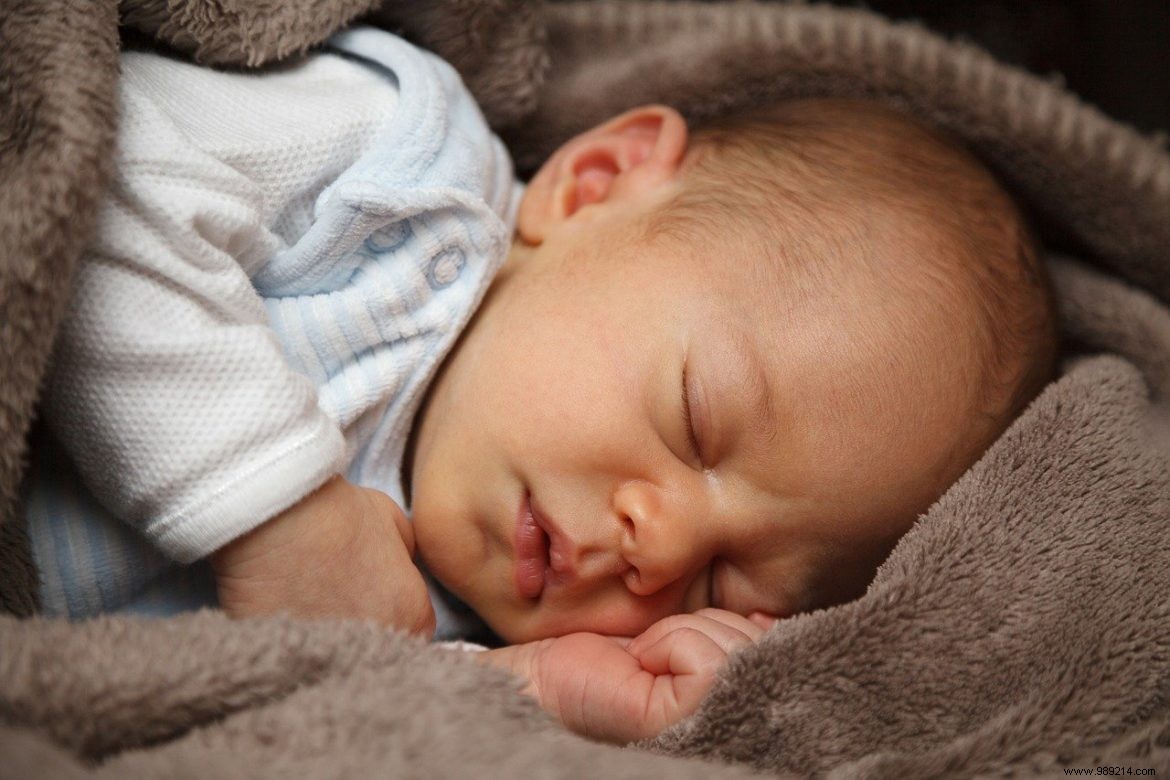
Eczema is a chronic inflammatory condition characterized by periods of flare-ups. In infants, it tends to manifest itself particularly in winter because of the dehydration of the skin due to temperature differences between low outside and high inside. The symptoms appear gradually, first redness, then scales or even pustules or blisters which, if scratched, can cause bleeding and infection. Although eczema in itself is not a serious condition, the itching can quickly become bothersome for babies. It should therefore be treated as soon as possible. Also, some typical signs can be confused with other more serious conditions, it is better to consult the advice of a doctor in case of doubt.
Contents 1 Treating atopic eczema 2 Prevention to cure 3 Contact eczema:what to do? 4 Relieve skin lesionsAtopic eczema (or dermatitis) is by far the most common form of eczema. If there is no lasting drug treatment, except corticosteroids, the taking of which is not without consequences in the long term, natural remedies can effectively relieve baby's itching. In the event of a flare-up, you can first apply cold water compresses to the parts affected by the redness. To rehydrate your skin, ban excessively irritating products such as wipes and favor baths – not too frequent – in low-calcareous water. Add some powdered oats to the bath for its emollient effect. If you live in an area where the water is very heavy in limestone, you can possibly buy pebbles to soften the pH. For his toilet, opt for products without perfume and without preservative with the mention "physiological pH" which can durably relieve the symptoms. Remember to dry baby well after his bath, without however rubbing him and apply a moisturizing cream with a neutral pH. The oléocalcaire liniment, a care composed of olive oil and lime remains also effective. You can find it in any parapharmacy or even make it yourself.
If turning down the heating can drastically reduce the drying of baby's skin, you should also know that eczema is also aggravated by wearing rough clothes, especially in winter, when wool is more popular. Instead, choose soft and silky materials such as cotton, bamboo fiber or linen. Also consider thermoregulating clothing or organic brands that generally offer hypoallergenic textiles. Before going outside, if the outside temperatures are low and more particularly if they drop below zero, apply a cream which acts as a protective barrier, but avoid covering your child too much at the risk of making him sweat and therefore accentuate the friction of the skin. Baby likes to go to the swimming pool? You should know that chlorine is particularly irritating and is not known for its ability to relieve eczema. Although this condition is not a contraindication to the pool, some precautions are necessary. A barrier cream, applied shortly before swimming can prevent the risk of itching. And for your home, if the air is too dry, in particular because of the heating, you can invest in a humidifier. Nevertheless, be careful to maintain it well and change the water regularly so as not to maintain a nest of microbes.
In babies, eczema can also be called “contact eczema”, that is to say not to be chronic, but to be triggered by an abnormal reaction of the immune system. The causes are multiple, the allergic reaction can be due to food, stuffed animals or a carpet full of dust mites or simply occur because of too aggressive a detergent. Fabric softeners, especially those that are scented, often contain allergenic and irritating substances. To prevent the risk of contact eczema or reduce its symptoms, wash baby clothes with a mild or hypoallergenic soap. Even if we think less about it, mobile phones also often promote an outbreak of eczema because of the nickel they contain, just like certain jewellery... Of course, the best remedy is to identify where the eczema comes from. allergy, but today allergens are ubiquitous. In addition, contact eczema often occurs in subjects with atomic dermatitis. But the good news is that sometimes it disappears spontaneously when the child grows up.
If plaques are already present, to prevent them from becoming infected, cut baby's nails and apply a healing product. Aloe vera, for example, is particularly effective in relieving eczema as are baking soda compresses. To do this, mix a few tablespoons of baking soda with water and apply the mixture to the affected areas. Leave on for twenty minutes and rinse with clear water. Other natural solutions can also be found in plants. Certain essential oils such as calophyllum or fine lavender are known for their healing properties, however it should be noted that certain phytotherapy treatments are not recommended for the youngest.